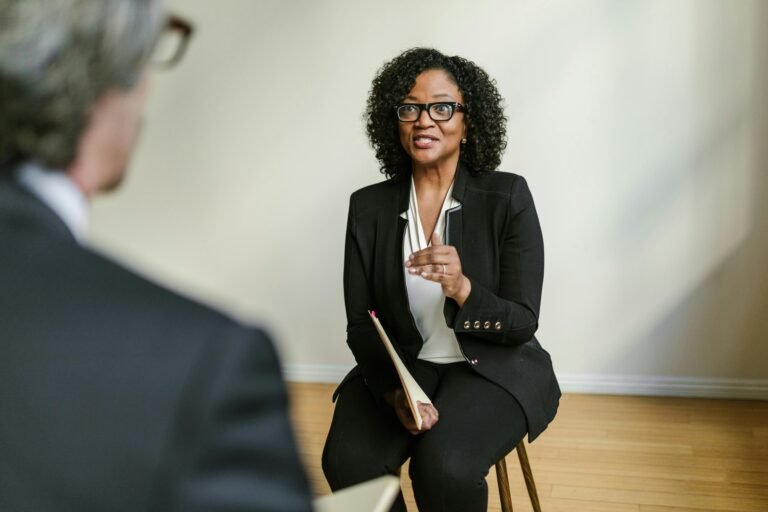So, you’ve spent time refining your resume, gathering references, and maybe even rehearsing answers to common interview questions. But once you’re face-to-face (or screen-to-screen) with a school hiring committee or panel, your experience on paper is just the starting point.
Whether you’re applying for a teaching position, support staff role, or a school leadership job, what hiring panels are really looking for in an interview often goes deeper than your qualifications and credentials. They’re observing how you think, how you work with others, and how you’ll contribute to the greater school community.
In this guide, we’ll unpack the key qualities school hiring committees are looking for, and how you can show them that you have those qualities clearly, confidently, and authentically. By the end of this post, you’ll have practical insight into what matters most, and how to walk into your next school interview with clarity and confidence.
7 Things Hiring Committees and Panels Look for During School Interviews
1. A Clear Connection to the School’s Mission and Culture
What it means: You’ve done your research, and you’re genuinely excited to be part of this school, which is not just any school.
Why it matters: Hiring committees or panels want to see that you understand their values, vision, and what makes their school community unique.
How to show it:
- Mention specific programs, priorities, or initiatives the school leads.
- Talk about how your own teaching philosophy, work ethic, or experience aligns with the school’s mission, vision, and values.
- Use language that reflects the culture of the school, especially if it focuses on things like equity, community, or innovation.
For Example:
“I noticed your school emphasizes social-emotional learning, which I also prioritize in my classroom by incorporating mindfulness and restorative practices.”
2. Genuine Passion for Student Growth and Well-Being
What it means: You’re not just there to manage a class or clock in, you care about helping students grow in meaningful, and lasting ways.
Why it matters: Hiring committees or panels want to know that student success (academic, emotional, and social) is central to your work.
How to show it:
- Share a story about a student you supported or a time you helped someone overcome a challenge.
- Be specific: What did you do? Why did it matter? What did you learn?
For Example:
“In my last role, I had a student who struggled with attendance. I worked with the school counselor and family to create a check-in system, and over time, her attendance improved dramatically.”
3. Evidence of Flexibility and Problem-Solving
What it means: You can adapt to changing situations and think creatively under pressure.
Why it matters: School days don’t always go as planned. From tech glitches to behavioral challenges, flexibility is crucial.
How to show it:
- Share an example where you had to shift your plan or troubleshoot something unexpected.
- Be honest, but always highlight what you learned or how you improved.
For Example:
“When my co-teacher had to leave mid-year, I stepped into a larger role, restructured our routines, and worked with our administration to ensure continuity for students.”
4. Strong Interpersonal and Communication Skills
What it means: You build positive relationships with students, families, and colleagues, and you know how to communicate clearly.
Why it matters: Schools run on collaboration and trust. Whether you’re teaching, supporting, or leading, people need to know they can count on you.
How to show it:
- Describe a time you worked on a team or resolved a conflict.
- Talk about how you build relationships across roles (e.g., working with families or supporting staff).
For Example:
“I partnered with a group of paraprofessionals to better support our students with IEPs. We met weekly to share observations, coordinate accommodations, and ensure consistency.”
5. Commitment to Equity and Inclusion
What it means: You recognize and support the diverse needs of your school community.
Why it matters: Diversity, equity, and inclusion are essential to creating a school where every student feels safe and valued.
How to show it:
- Share how you’ve adapted your instruction or work to meet varied needs.
- Be honest about your growth, talk about trainings, books, or conversations that helped you develop this lens.
For Example:
“I revised my curriculum after noticing it lacked diverse voices. Now I regularly include literature from authors of different backgrounds and create space for student identity exploration.”
6. A Growth Mindset and Willingness to Learn
What it means: You welcome feedback and are committed to getting better at what you do.
Why it matters: No one is perfect, and hiring teams want to know that you’re open to learning and improving.
How to show it:
- Talk about a time when feedback helped you grow.
- Mention how you stay current with professional development or evolving educational practices.
For Example:
“After a colleague observed one of my lessons, she suggested ways to increase student voice. I tried her strategies and saw an immediate improvement in engagement.”
7. Professionalism and Presence
What it means: You show up prepared, grounded, and reliable.
Why it matters: Schools need people who follow through, represent the school well, and take the role seriously.
How to show it:
- Be on time, dress appropriately, and follow up with a thank-you email.
- Be honest but professional in how you talk about past roles.
- Speak with clarity and respect, without trying to sound rehearsed.
For Example:
“I appreciate how your team made the interview process welcoming. It already gives me a sense of the collaborative environment at your school.”
Traits Panels Also Notice (Even If They Don’t Say It)
- Listening Skills: Do you interrupt or engage thoughtfully?
- Curiosity: Do you ask meaningful questions that show reflection?
- Humility: Are you open about challenges and areas for growth?
- Energy: Do you bring positive energy and presence to the conversation?
These small, sometimes unspoken cues say just as much as your answers.
In Closing: You’re Not Just Being Interviewed, You’re Being Experienced
Most hiring committees or panels won’t remember every word of your answers, but they will remember how you made them feel. They’ll remember if you showed curiosity, if you came across as collaborative, and if you seemed like someone they could trust with students, staff, and families.
You don’t need to be perfect. You just need to show that you are thoughtful, reflective, and aligned with the mission of the school you’re applying to. So before your next interview, take a moment to go deeper than your resume. Reflect on who you are as an educator or support professional, and what kind of teammate you’ll be.
That’s what hiring panels are really looking for.
Related Posts
What to Say and What Not to Say About a Previous Employer
How to Conduct a Self-Assessment to Identify Your Strengths and Weaknesses
Why You Should Never Criticize a Former Employer During a Job Interview
5 Strategies for Turning a Negative Job Experience into a Positive Interview Discussion
Tips to Identify Your Accomplishments and Achievements in Preparation for Writing a Resume









